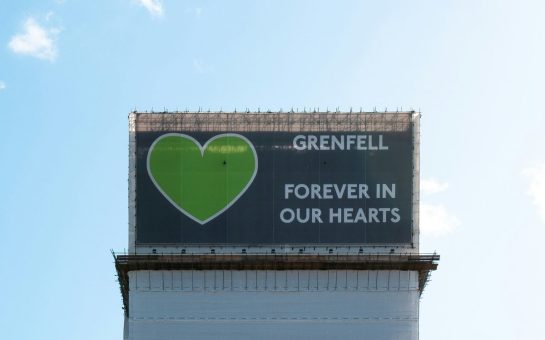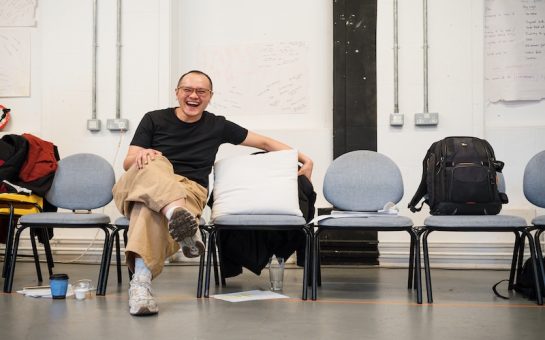Lotifa Begum was one of the first on the scene at Grenfell, and remembers that day like it was yesterday. She describes it as one of the most difficult times in her entire life, spending weeks in west London providing support and determining the needs of survivors.
Lotifa has had counselling after seeing the horrors of Grenfell, what the families went through, and sharing the huge amounts of loss and trauma with them, including attending several funerals of those who lost their lives.
She said: “Emotionally, it’s been the most challenging thing I’ve ever done.”
On her third day working at Muslim Aid, Lotifa saw the news of Grenfell, she made some calls to her colleagues and headed over from east London to assist with the aftermath.
Lotifa recalled: “When I arrived at the Rugby Portobello Trust, there were scenes of chaos and families were distraught – they were looking frantically to hear what happened to their loved ones.
“A lot of them were fasting, and they wouldn’t break their fast because the teaching in Islam is that when you’re fasting, then your prayers are answered. They were holding on to the hope and prayers that their loved ones were still alive.”
She spent that day providing emotional support to families and realised that the fire was going to cause a huge need for psychological help for the community to recover from the trauma of what had taken place.
Two years on, the damage is apparent. Families are in inadequate accommodation, or still not in permanent accommodation, many in the community are suffering anxiety, flashbacks and PTSD.
Council workers operated from a centre in Westway, but Lotifa says that the bulk of the work was left to the voluntary sector to step up.
“I’ve never seen as many voluntary agencies, particularly all the local organisations like Rugby Portobello and Al Manaar mosque open their doors. They were the ones to open their doors first and provide assistance to these families, and the community just turned up to help each other,” she said.
The voluntary organisations were left to provide clothing, help with funeral arrangements and take care of the support needed by families to get through their ordeal.
“The council workers didn’t know how to meet cultural needs. There was one time in the Westway Centre when I was there, with a poor Afghani lady who had been distraught for the last few days wondering if her husband was still alive, and in the hallway corridor, the council were going to break the news about her deceased spouse with no translator, and no emotional support,” she said.
“I intervened to say she needed a translator, and to take her to a separate room. It was rather shocking the way that they dealt with them.”
Voluntary services for Grenfell survivors face budget cuts, and Lotifa believes the council failed the community. Families were told to get into taxis and book into a hotel with no support from the council, and two years on, the situation hasn’t improved.
She said: “I couldn’t believe people could be treated like that. Because they’d just come out of a burning building, and if that was my family and loved ones, I would be traumatised by the way that the council dealt with me.”
Numerous concerns were raised with the council on fire safety in the building before it happened.
Lotifa said: “Many of them came from migrant backgrounds, a lot of them came from countries where they faced trauma, like Syria, seeking refuge from war zones.
“They came to the most affluent boroughs, and were treated like second class citizens.
“If this had happened to someone from a middle-class background in a private rented property, I can only imagine that maybe the council might have listened to those people.”
Lotifa believes long-term government investment is desperately needed to help the community, including investment in mental health services, to ease the strain on voluntary organisations.
Lotifa and Muslim Aid wrote a report criticising the official response and putting forward a list of recommendations to further help the survivors of Grenfell which was agreed by ministers, who are still yet to act on the recommendations.
Councillor Elizabeth Campbell, leader of Kensington and Chelsea Council, said: “Council staff have never stopped caring and never stopped working, and this will continue to be the case when every family is in their new home and starting to rebuild their lives, and we are working with our colleagues in the NHS who will be crucial for this long-term effort.”
A council spokesperson said in January it agreed £50 million funding to support the recovery of those affected by the Grenfell tragedy over the next five years. He added the council has spent over £230m to secure over 300 homes, so that people have maximum choice available and that 185 households have moved into a home of their own. He said 14 households are in temporary accommodation, 7 of whom have accepted permanent homes, that one family is in a serviced apartment and has accepted a permanent home and one family is in a hotel and has accepted a permanent home.




